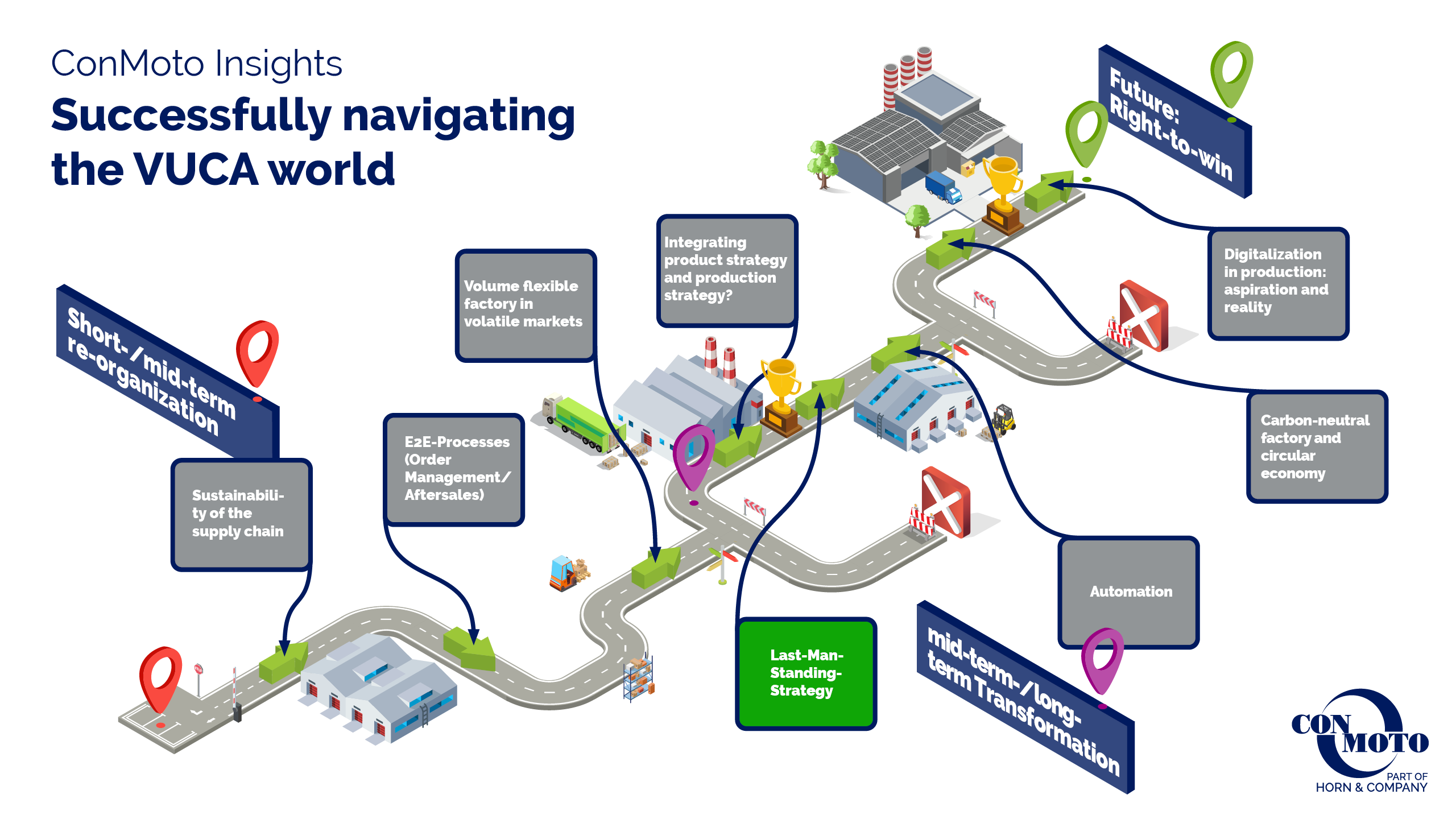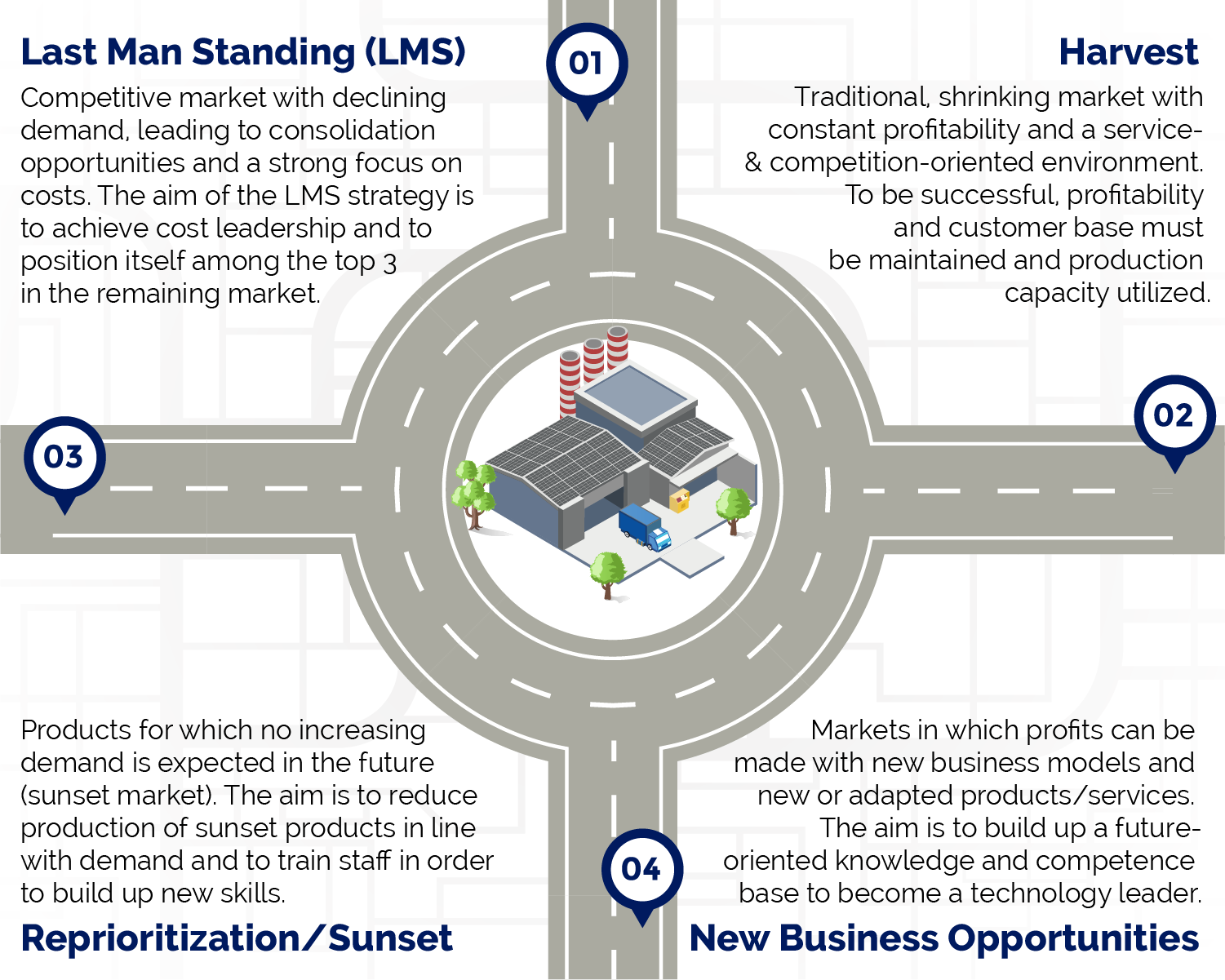
The technological change in the automotive industry in the form of the trend from combustion engines to hybrid and all-electric drives is one of the most striking examples of disruption in an industrial sector. While petrol and diesel vehicles still accounted for 98.6 percent of new car registrations in Germany in 2013 and 74.8 percent even in 2020, cars with combustion engines only managed a market share of 51.5 percent in 2023. Last year, 23.3% of new registrations were hybrid vehicles (excluding plug-in hybrids), 18.4% pure electric vehicles and 6.2% plug-in hybrids.
The trend towards e-drives and other technological developments as well as changes in customer behavior are further increasing the pressure on car manufacturers and suppliers to adapt, including autonomous or semi-autonomous driving, changes in mobility behavior and changes in production processes due to advancing automation and digitalization.
Companies must act now and initiate strategic change for products and production. The aim of Last Man Standing (LMS) strategies is to reduce the production and sales of products that are likely to be discontinued, in this case the engines and powertrains for petrol and diesel vehicles, as profitably as possible. At the same time it is important to ensure the necessary flexibility to be able to adapt to changing market conditions and benefit from new market opportunities. New technological expertise must be built up so that OEMs and suppliers can supply the drives that are approved by regulators – keyword CO2 emissions – and that are in demand by customers.
Structured approach in shrinking markets
ConMoto has developed a structured approach that supports strategy development in shrinking markets, regardless of the industry and considering the individual company and market situation. A distinction is made between four basic strategies:

Internal combustion vehicles: a classic LMS scenario
In the case of combustion vehicles, we see the classic characteristics of a declining, and in the long term even disappearing, market: demand is falling, while at the same time car manufacturers have a great deal of expertise and there is strong cost pressure due to the high number of competent competitors. The complexity is further increased by new regulations and trade conflicts, which put a strain on supply chains and in some cases make market access more difficult. n this situation broad-based production networks offer potential for sensible consolidation. The LMS strategy for the optimal restructuring of production increases profitability in later product life phases and creates scope for investment in growth projects.
Combining cost and technology leadership
In this rapid development phase of the automotive industry, the LMS principle is shaping the business world. The industry is just one example. New technologies and new environmental and sustainability standards are radically changing many markets and industries. To be successful with LMS strategies requires a consistent transformation of entire business units due to the sharp decline in demand, which will disappear in the medium to long term. LMS focuses on cost leadership and therefore competitiveness. The aim is to be among the Top 3 in the market environment in terms of costs and to address the demand of both existing and new customers, driving competitors out of the market. Cost leadership is the basis for companies to survive disruptions and remain profitable even in shrinking markets. This increases the window of opportunity to restructure the product portfolio and production. A leading position in research and development forms the second pillar and is the prerequisite for long-term success in markets that continue to develop even under disruptive conditions. Companies achieve this by implementing new technologies to make production processes more flexible and consolidate production capacities. They also improve their competitiveness through measures that go beyond company boundaries: These include strategic partnerships and the early involvement of suppliers and customers in development processes. A successful LMS strategy combines pragmatic cost aspects with innovation-driven measures that initially secure the existence of your company and, in a second step, sustainably increase your company’s profitability.
ConMoto: our expertise make your company more profitable
Develop the optimal strategy for competitive, shrinking markets with ConMoto.
Any questions? Please contact us


 Deutsch
Deutsch